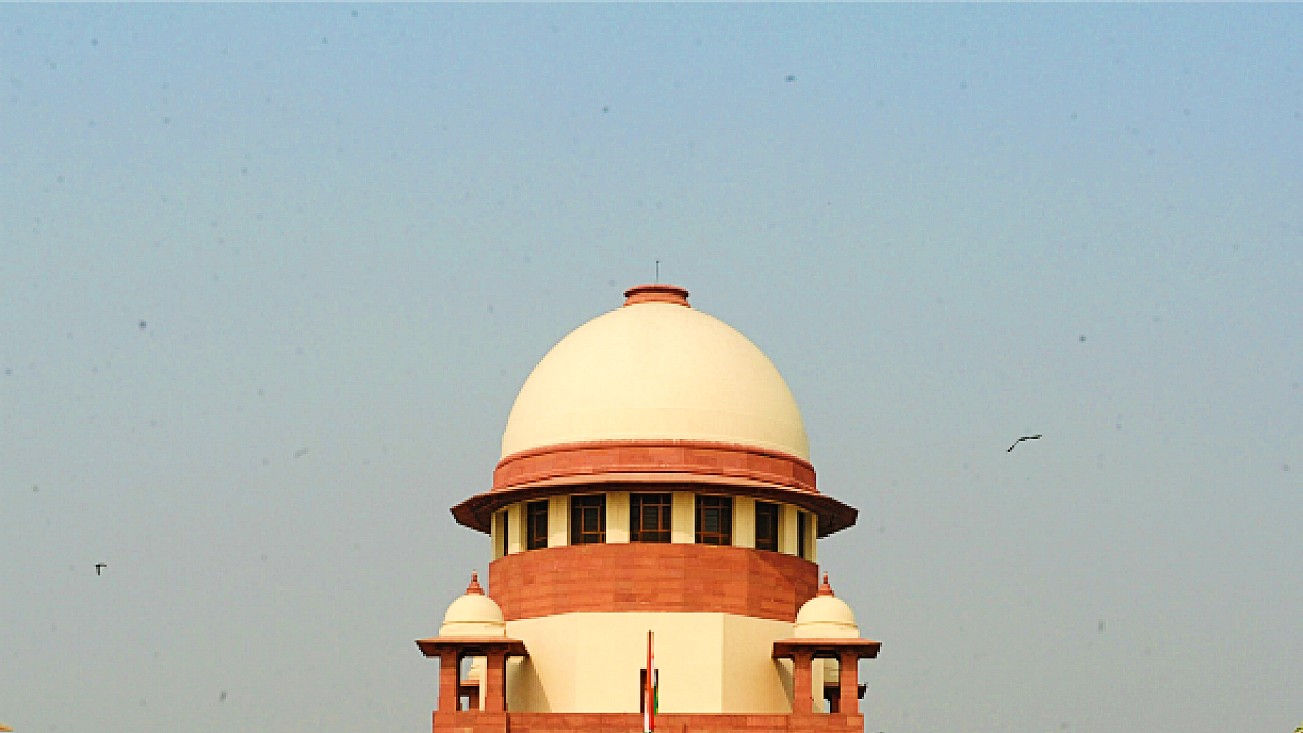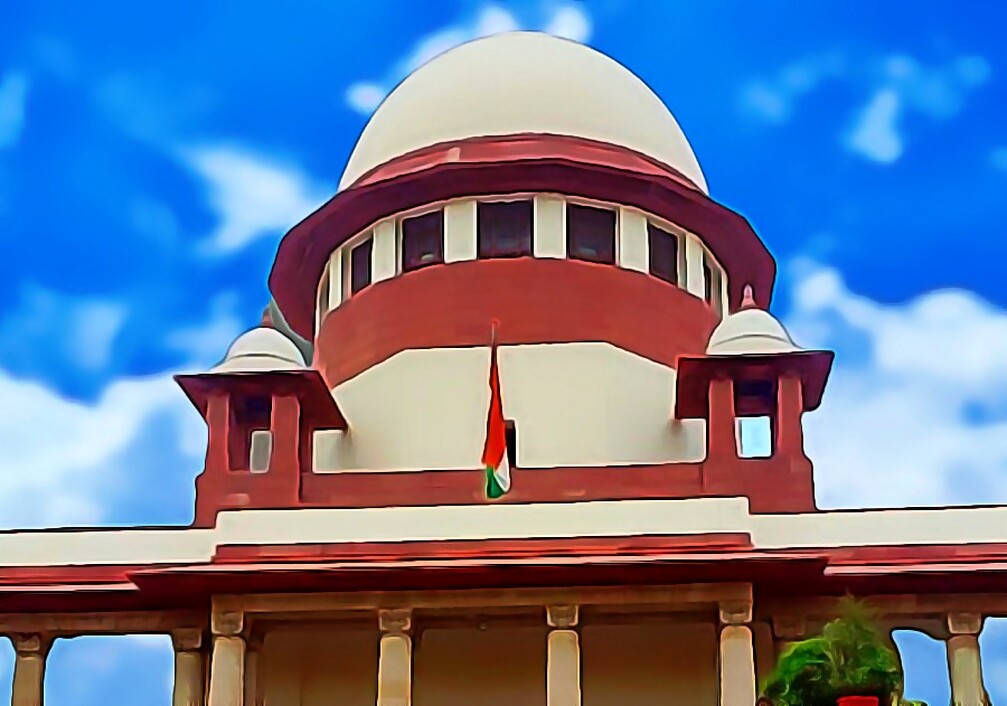Starting fresh selection process is violative of Article 14: SC orders reinstatement of Professors in Jamia University where UGC-sanctioned posts under Centre for Women’s Studies had been merged into regular establishment budget
Justices Abhay S. Oka & Pankaj Mithal [15-04-2024]

Read Order: MEHER FATIMA HUSSAIN v. JAMIA MILIA ISLAMIA & ORS [SC- CIVIL APPEAL NO. 4963 OF 2024]
LE Correspondent
New Delhi, April 16, 2024: In a case pertaining to the merger of teaching posts sanctioned by the UGC under the Centre for Women’s Studies into regular establishment of the Jamia Milia Islamia University’s budget, the Supreme Court has come to the aid of the aggrieved teachers by ordering their reinstatement within three months.
One of the appellants- Sabiha Hussain, was initially appointed as a Reader on probation on an ad-hoc basis by Jamia Milia Islamia University. The 1st and 2nd respondents represent the University. In 2008, she was appointed to a sanctioned post of Reader in the programme for the Study of Social Exclusion and Inclusive Policy in Dr. K.R. Narayanan Centre for Dalit and Minority Studies. She was appointed a professor under the Career Advancement Schemes of 2010 of the University Grants Commission (UGC), and she was also given the additional charge of the post of Director in Sarojini Naidu Centre for Women Studies.
In 2016, the University invited applications to the post of Professor/Director and other academic posts in the Sarojini Naidu Centre established by the 1st respondent. She applied pursuant to the advertisement and was appointed as the Professor/Director. In a letter dated 25th June 2019, the UGC clarified that the teachers appointed through the proper selection procedure and who are duly qualified shall stand merged under the regular establishment budget of the University.
When the appellant sought confirmation of service by addressing a letter to the University,the first respondent issued a show cause notice to her for misconduct. Thereafter, the appellant was replaced by another professor as the Director of Sarojini Naidu Centre. The appellant filed a Writ Petition and the Single Judge directed the reinstatement of the appellant to the post of Professor/Director of Sarojini Naidu Centre by way of an interim order. On April 1, 2020, the University stopped the functioning of the Sarojini Naidu Centre.
After that, the first respondent advertised the post held by the appellant. In the Writ Petition, the UGC filed an affidavit stating that it had given “in-principle approval” to the University to regularise the appointees of Sarojini Naidu Centre, including the appellant. However, the Single Judge dismissed the Writ Petition on the ground that the appointment of the appellant was purely temporary. Being aggrieved by the said order, the appellant preferred a Letters Patent Appeal. On April 11, 2023, the High Court passed the impugned judgment, dismissing the appeal preferred by the appellant.
Another appellant- Meher Fatima Hussain was appointed to the post of Lecturer on probation in the said University. Subsequently, the University converted the post from a probationary post to a temporary post. As in the case of the other appellant (Sabiha Hussain), the initial appointment of the appellant was in Dr. K.R. Narayanan Centre for Dalit and Minority Studies. The appellant received the upgradation benefit of the Career Advancement Scheme.
Thereafter, she was offered the post of Associate Professor (tenure Post till XII plan period or till the scheme lasts) in the Sarojini Naidu Centre. The steps were taken by the University to seek approval from the UGC for the merger of the posts in Sarojini Naidu Centre into regular establishment. A Writ Petition was filed by the appellant which was dismissed. The case of another appellant-Suraiya Tabassum was more or less similar to those of the aforementioned appeals. The Top Court was considering the appeals challenging the judgment dismissing the Letters Patent Appeals.
After a perusal of the facts, the Division Bench of Justice Abhay S. Oka & Justice Pankaj Mithal opined that the appellants' appointments in December 2016 were made according to a regular selection process commenced based on an advertisement dated July 12, 2016. The selection committee conducted a regular selection process. It was also admitted that the appellants held qualifications prescribed by the UGC for the posts on which they were appointed in December 2016.
Considering the fact that in 2017, the 2nd respondent – Registrar of the University, addressed a letter to UGC alongwith annexure wherein the names of the three appellants were mentioned as persons working in the teaching positions at Sarojini Naidu Centre, the Bench opined that the University admitted that the appellants were appointed to the respective posts by the University through a proper selection process. The present appellants were appointed to the teaching posts in Sarojini Naidu Centre. The appellants, along with other teachers, also made a representation to the Vice Chancellor for their continuation after the merger.
The UGC had also permitted the University to merge the teaching posts in Sarojini Naidu Centre into its regular establishment. The UGC had specifically informed the University that the teachers appointed through a proper selection process, who fulfilled the educational and other qualifications prescribed by UGC and whose appointments were approved by the Statutory bodies, can be merged with the regular establishment of the University. This made it clear that the UGC permitted the University to treat the appellants and similarly situated employees as regularly appointed and merge their posts with the regular establishment budget of the University.
The University was capitalising on the word “may” used in the said letter to contend that it was not mandatory for the University to continue the appellants and similarly situated teachers. However, considering the statutory position of the UGC, there was no reason for the University not to follow what the UGC stated. Moreover, nothing had been placed on record showing that the scheme expired. The Bench was of the view that the appellants should have been continued after the merger, as suggested by the UGC.
The Top Court further stated, “Thus, considering that appellants were appointed after undergoing a regular selection process and they possess relevant qualifications as per the norms of UGC, they should have been continued on the posts merged with the regular establishment of the University instead of adopting the fresh selection procedure. In the facts of this case, the University's action of not continuing them and starting a fresh selection process is unjust, arbitrary and violative of Article 14 of the Constitution of India. Therefore, the employment of the appellants will have to be continued after merger.”
Thus, by setting aside the impugned judgments, the Bench directed the 1st and 2nd respondents to reinstate the appellants in their respective posts based on their selection in December 2016. They have been ordered to be reinstated within three months. Though the appellants would be entitled to continuity in service and other consequential benefits, the Bench held that they will not be entitled to pay and allowances for the period for which they have not worked.
Allowing the appeals with no orders as to costs, the Bench held, “If any teachers have been appointed in the posts held by the appellants, the University shall consider whether they can be accommodated in the vacant posts, if any, in accordance with the law.”
Sign up for our weekly newsletter to stay up to date on our product, events featured blog, special offer and all of the exciting things that take place here at Legitquest.




Add a Comment